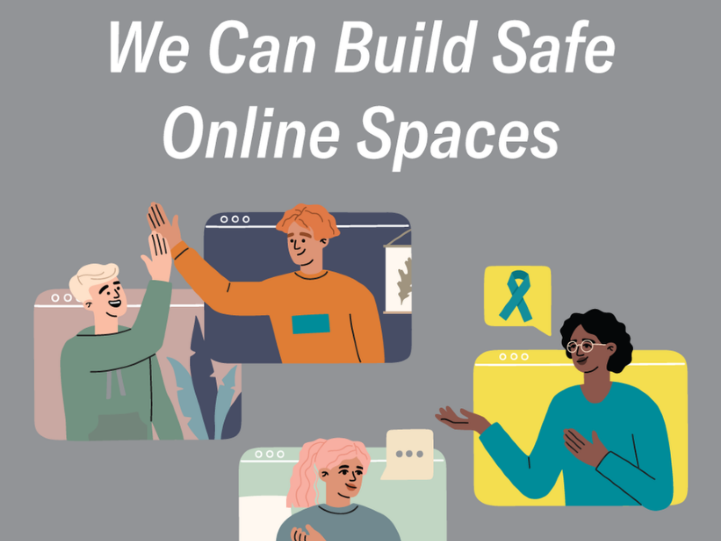
KC Spotlight: SRVPER
Region IV-W
April 7, 2021
April 2021 is the 20th anniversary of Sexual Assault Awareness Month (SAAM). A time when campus prevention and advocacy professionals across the region and country are reminding students and their peers about consent, respect, boundaries, bystander intervention, and healthy relationships. I use the word reminding, because as professionals working on the academic calendar, we’d be remiss if we only began educating on these topics in April, as the school year is about to sunset.
This year the theme the National Sexual Violence Resource Center (NSVRC) selected is, “We Can Build Safe Online Spaces.” This is an excellent choice because most (if not all) of our campuses are operating in a myriad of hybrid ways, propelled by stable and secure internet connections. From the academic side of the house livestreaming lectures, to student activities teams hosting virtual trivia nights and Mine Craft servers. Each colleague and student has a story about unsafe online interactions; from experiencing harassing comments, inappropriate Zoom images and videos (dubbed Zoombombing), to poorly moderated message boards where racism, sexism, and homophobia thrive under anonymity.
Here are some of the NSVRC’s suggestions for creating safe online spaces.
- Practice Consent and Respect for Boundaries Respecting password privacy, asking for permission, consensual communication and image-sharing
- Identify Red Flags that are warning signs of online predation (inappropriate comments/images/memes, asking to keep the relationship secret
- Create Respectful Online Workspaces and Classrooms Communicate expectations for respectful interactions, providing ways to report harassment or abuse, community norms that support healthy and respectful interactions.
- Support Survivors of Online Harassment Speak out when we see harmful comments, be an active bystander, check in on survivors of online harassment.
Higher Education professionals working in prevention, advocacy, and response to sexual and relationship violence may have safe and accessible campus environments as top of mind, but truly creating safe online [and in-person] spaces is the work of everyone. Thanks for spending your time on this topic. Please consider joining the Sexual and Relationship Violence Prevention Education and Response Knowledge Community. We welcome anyone who is working at any intersection of these issues.
Fun Fact about SAAM: Teal was selected as the color signifying sexual assault awareness back in 2000, after sexual assault coalitions were polled by the National Sexual Violence Resource Center and the Resource Sharing Project.
SVRPER KC Rep for Regional IV-W, Sareen Lambright Dale, Colorado School of Mines
Additional resources related to this conversation:
Lorenz T., a. A. (2020, April 3). Zoombombing becomes a dangerous organized effort. New York Times. Retrieved April 7, 2021, from https://www.nytimes.com/2020/04/03/technology/zoom-harassment-abuse-racism-fbi-warning.html
UN Women (2020) Issue Brief COVID-19 and Ending Violence Against Women and Girls. Retrieved April 7, 2021 from https://www.unwomen.org/-/media/headquarters/attachments/sections/library/publications/2020/issue-brief-covid-19-and-ending-violence-against-women-and-girls-en.pdf